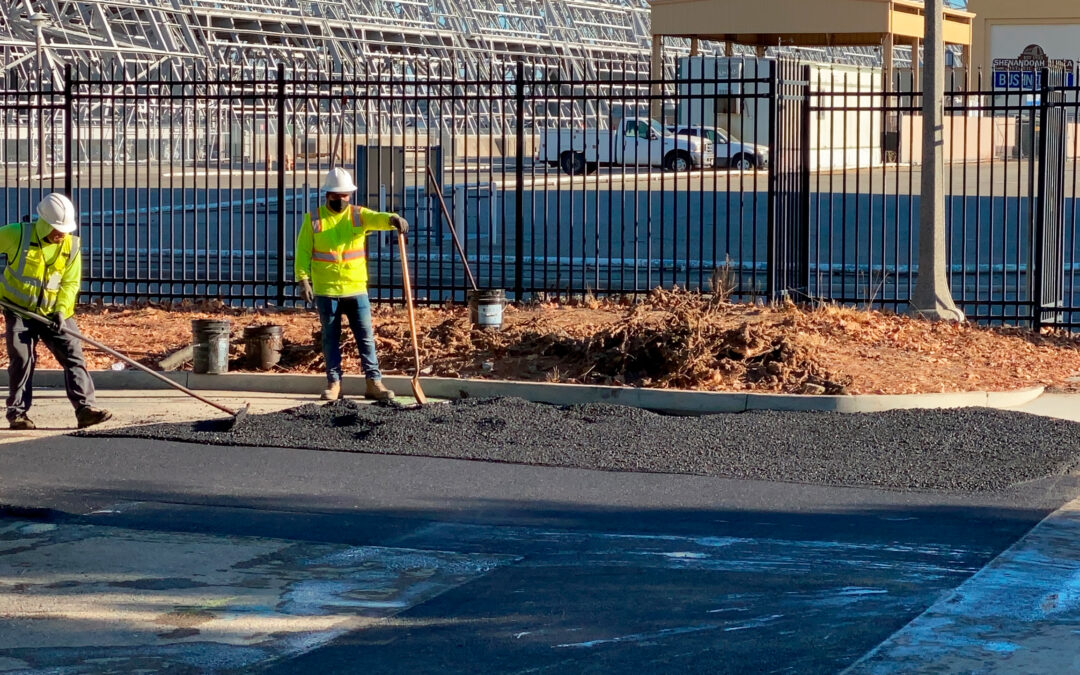Paving a driveway is a significant investment that can enhance the curb appeal, functionality, and value of your property. However, rushing into the paving process without proper preparation can lead to costly mistakes and premature pavement failure. One common question that homeowners face is how long their driveway should sit before paving. In this comprehensive guide, we’ll explore the factors that influence this decision and provide valuable insights to help you plan your driveway paving project effectively.
Site Preparation
Before paving can begin, it’s essential to ensure that the site is properly prepared. This includes clearing the area of any vegetation, debris, or existing pavement. Additionally, the subgrade – the natural soil or aggregate layer beneath the pavement – should be inspected and, if necessary, graded and compacted to provide a stable foundation for the new driveway. Depending on the condition of the site and the extent of the preparation required, this process can take anywhere from a few days to several weeks.
Weather Conditions
Weather conditions play a significant role in determining how long a driveway should sit before paving. Ideally, paving should be done during dry, mild weather to ensure optimal conditions for the installation and curing of the asphalt. Wet or rainy weather can delay the paving process and compromise the quality of the finished pavement. Additionally, extreme temperatures – both hot and cold – can affect the workability and performance of the asphalt mix, necessitating adjustments to the paving schedule.
Subgrade Settlement
After the site preparation is complete, it’s important to allow time for the subgrade to settle properly before paving. This is especially crucial if significant grading or excavation work was performed, as it can cause the soil to shift and settle over time. Allowing the subgrade to settle ensures a more uniform and stable foundation for the pavement, reducing the risk of settlement and cracking in the future. Depending on the soil conditions and the extent of the excavation, subgrade settlement can take anywhere from a few weeks to several months.
Soil Moisture Content
The moisture content of the soil also influences how long a driveway should sit before paving. Excessively wet or saturated soil can lead to poor compaction and stability, resulting in uneven settling and structural issues with the pavement. Conversely, overly dry soil can be difficult to work with and may require additional watering to achieve the desired compaction. By allowing the soil to reach an optimal moisture content before paving, you can ensure better performance and longevity of the driveway.
Permitting and Approval Process
Depending on your location and local regulations, you may need to obtain permits or approvals before paving your driveway. This process can vary in length depending on the complexity of the project and the requirements of the permitting authority. It’s essential to factor in the time needed to secure any necessary permits and approvals when planning your paving project to avoid delays and ensure compliance with local regulations.
Contractor Scheduling
Once all the necessary preparations are complete, you’ll need to coordinate with a reputable paving contractor to schedule the actual paving work. Keep in mind that paving contractors may have busy schedules, especially during peak paving seasons, so it’s essential to book their services well in advance. Additionally, the duration of the paving project will depend on factors such as the size of the driveway, the complexity of the design, and the availability of equipment and manpower. Be sure to discuss your timeline and scheduling requirements with your contractor to ensure a smooth and timely completion of the project.
Conclusion
Paving a driveway is a significant undertaking that requires careful planning and preparation. By considering factors such as site preparation, weather conditions, subgrade settlement, soil moisture content, permitting and approval processes, and contractor scheduling, you can determine how long your driveway should sit before paving. Taking the time to plan your paving project properly will help ensure the success and longevity of your new driveway, providing years of reliable service and enhancing the overall aesthetics and value of your property. So whether you’re planning to pave a new driveway or rehabilitate an existing one, remember that timing is key, and patience pays off in the long run.


